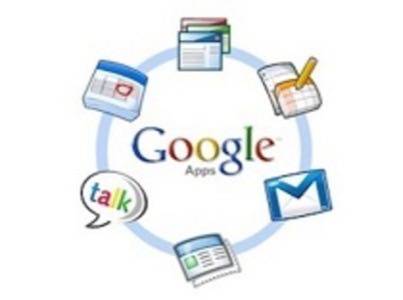The end of Google Wave and rumors that the company is building a Facebook competitor has a lot of people talking about Google‘s need to get better at social. Fortune’s article on Google’s future growth last month, apart from highlighting absurdity a company becoming “too successful,” speculates as to what Google will need to do in order to continue growing in the future. The article’s authors dismiss Google Apps for Enterprise and move on to sexier fair, discussing what Google needs to do to be more “social.” But it’s clear that Google has big plans for the enterprise. First, of course, because Eric Schmidt has said so, but also because of the various steps the company is taking.

Why should Google focus on the enterprise instead of social networking sites? As pointed out by box.net‘s CEO Aaron Levie, enterprise IT spending dwarfs online advertising spending. The $79.4 billion budget for federal IT spending alone is more than three times the $24.2 billion spent on online advertising in 2009, making Google Apps for Government look like a very smart business venture.
But what besides Google’s existing Apps project can you expect in the enterprise?
1. As Your Telecom and ISP
Google just got into unified communications by integrating Google Voice into Gmail. For right now this is seen as a consumer technology, but can we really expect that this won’t be appealing to increasingly mobile, distributed businesses? Skype‘s enterprise VOIP solution just came out of beta, and Cisco is supposedly lusting after it. And remember Cisco’s weird Android tablet? If Cisco doesn’t get Skype, don’t be surprised to see Google Call integrated into its own communications and collaboration software.

But it’s not just voice – don’t forget Google’s and free wireless broadband offerings. These moves have been seen as measures to pressure existing telecoms to offer faster service – but it’s important that Google owns a lot of fiber and has been pushing to open more wireless spectrum.
Oh, and they’re also bringing the Internet to space.
What it means for the enterprise:
In a few years you might be considering a complete broadband/UC package offer from Google.
So far, Google’s been targeting this tech at the consumer market. Even if it remains there for the time being it’s significant – Forrester has suggested Google’s enterprise growth will be driven in part by consumers. According to Forrester, 39% of information workers have used Google Docs to solve a problem or collaborate. Why wouldn’t they use Google Voice/Calls as well?
Also, in an increasingly distributed, mobile enterprise, chances are a lot of your enterprise’s data is flowing through your employees home Internet service – and in the future, that service could be provided by Google.
2. As Your ERP SaaS
Google’s stated mission is “organize the world’s information and make it universally accessible and useful.” And Google’s core competency is search, not social software. So applying its strengths to enterprise resource planning – which could benefit from social features, but would as enterprise data explodes benefit more from search and analytics – is a logical next step, especially if the company really wants to tackle the enterprise. It makes sense from a business standpoint too – the ERP market place is worth $21.4 billion according to Gartner. Jonathan Bradford and Ian Leader made the case that an accounting system was the next logical addition to Google Apps here at ReadWriteWeb a few years ago, but of course that would be just one part of an ERP suite.

Although it’s conceivable Google would try to build something from the ground up, it makes more sense for them to acquire existing technology in this space. We’ve mentioned the idea that Google should buy Salesforce.com, which has grown from being just a CRM solution to a powerful enterprise cloud computing platform. There are clear advantages and disadvantages to such a move, and there are also plenty of other companies Google could acquire. Netsuite seems like an unlikely acquisition due to its close relationship to Oracle, but seems like a good fit. Netsuite has been promising Google Apps integration for months now, and there’s still no set date as to when Netsuite will be in the Apps Marketplace. (It may be worth noting that MyERP.com and Salesorder.com already offer Google Apps integration through the Apps Marketplace – does anyone have any experience with these services?)
Google could also conceivably build its own ERP software based on one of the various open-source solutions available.
What it means for enterprise:
Google Apps may start looking a lot more attractive if it offers easy, out of the box ERP integration – especially for new enterprises or enterprises already planning to switch to a new ERP platform. It would also likely make Chrome OS more attractive as an enterprise option.
3. As Part of Your Development Stack
According to Forrester, developers are Google’s other enterprise “Trojan horses.” Google has been courting developers with a range of resources:
What it means for the enterprise:
Even if Google’s voice and ISP moves never amount to much, and Google Apps just isn’t for your organization, there’s a lot of room for the company’s technology to creep into your enterprise via the development stack.
Bonus: As Your Utility Company
Earlier this year Google go the right to buy and sell energy. Google says it has no intentions of getting into the business of selling to consumers (or, presumably, businesses). It seems unlikely, but if they see a viable revenue stream (and need growth to appease Wall Street), why wouldn’t they go into the energy business?
What it means for enterprise:
You could, at least hypothetically, one day get your voice, Internet, electricity, operating system, messaging software, productivity and ERP software, development tools, and cloud hosting all from one place. At least accounts payable will simpler.

















